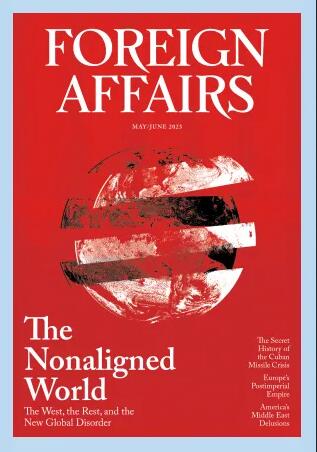第一次世界大战前夕的“乌克兰问题”
IF 6.3
2区 社会学
Q1 INTERNATIONAL RELATIONS
引用次数: 0
摘要
提交人在分析了2014年2月20日俄罗斯联邦发动的战争造成的乌克兰目前的社会政治状况后指出,这些状况与第一次世界大战爆发前的状况具有共同特点。这一事实使这项研究具有相关性,因为它需要从20世纪初不同国家的角度分析“乌克兰问题”。因此,这项研究的目的是确定第一次世界大战前夕乌克兰民族问题的实质。为此,本研究采用了分析综合、比较、演绎、概括、历史等方法。因此,“乌克兰问题”的内容是为参加第一次世界大战的国家确定的。特别是确定俄国的目标是在泛斯拉夫主义政策和“混血俄国兄弟”协会的支持下夺取东加利西亚、北布科维纳和外喀尔巴阡。最初,奥匈帝国也追求领土扩张的愿望,特别是通过吞并沃里尼亚和波迪利亚。因此,西欧和东欧的统一是有希望的。德国的目标是将俄罗斯帝国划分为不同的领土单元,并夺取东欧国家,特别是乌克兰,并让其公民在那里定居。研究报告所考虑到的外国对“乌克兰问题”的立场可以得出结论,即没有一个国家考虑到乌克兰人民的利益和愿望。这项研究的实际意义在于,它可以被现代研究人员,特别是历史学家在确定当前俄罗斯对乌克兰战争的先决条件和性质时使用本文章由计算机程序翻译,如有差异,请以英文原文为准。
The “Ukrainian Question” on the Eve of the First World War
After analysing the current socio-political conditions in Ukraine caused by the war unleashed on February 20, 2014 by the Russian Federation, the author noted that they have common features with those that were before the outbreak of the First World War. This fact made this study relevant, since it requires an analysis of the “Ukrainian Question” from the standpoint of different countries at the beginning of the 20th century. Thus, the purpose of the study was to determine the essence of the Ukrainian national question on the eve of the First World War. For this purpose, the study used the methods of analysis and synthesis, comparison, deduction, generalisation, and historical method. As a result, the content of the “Ukrainian Question” was determined for the countries that participated in the First World War. In particular, it was established that Russia's goal was to capture Eastern Galicia, northern Bukovina and Transcarpathia, while under the auspices of the pan-Slavist policy and the Association of “Half-Blood Russian brothers”. Initially, Austria-Hungary also pursued the desire for territorial expansion, in particular, through the annexation of Volhynia and Podillia. As a result, the unification of Western and Eastern Europe was expected. Germany's goal was to divide the Russian empire into different territorial units and to seize the countries of Eastern Europe, in particular Ukraine, and settle its citizens on them. The positions of foreign countries on the “Ukrainian Question” considered in the study allowed for the conclusion that none of them considered the interests and aspirations of the Ukrainian people. The practical significance of the study was revealed in the fact that it can be used by modern researchers, in particular historians, when determining the prerequisites and nature of the current war of Russia against Ukraine
求助全文
通过发布文献求助,成功后即可免费获取论文全文。
去求助
来源期刊

Foreign Affairs
INTERNATIONAL RELATIONS-
CiteScore
4.80
自引率
0.00%
发文量
2
期刊介绍:
Founded in 1922, Foreign Affairs is a prominent American magazine that focuses on international relations and U.S. foreign policy. It is published by the Council on Foreign Relations, an esteemed nonpartisan think tank and membership organization dedicated to analyzing U.S. foreign policy and global affairs. While the print magazine is released every two months, the website offers daily articles and publishes anthologies every other month.
 求助内容:
求助内容: 应助结果提醒方式:
应助结果提醒方式:


